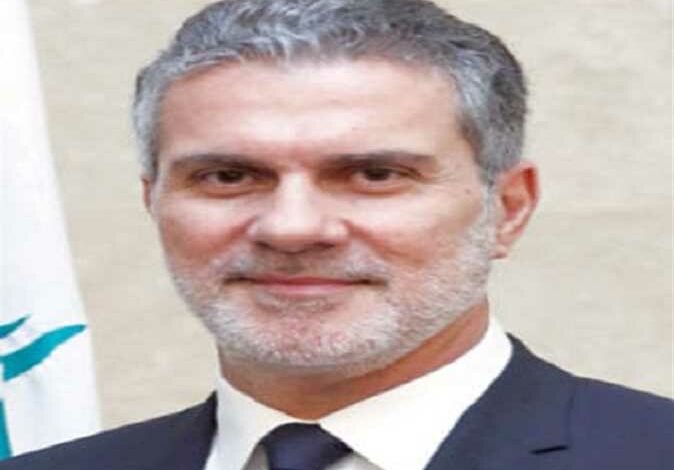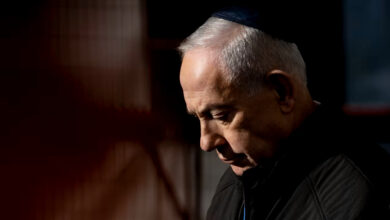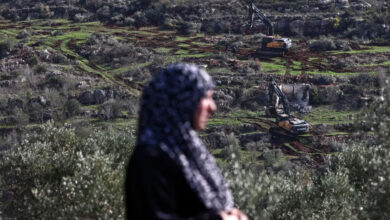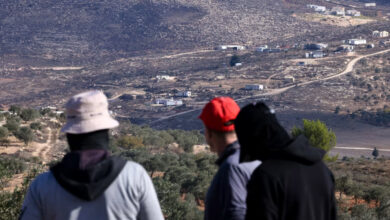
In this exclusive interview with Al-Masry Al-Youm, Lebanon’s Minister of Tourism Walid Nassar blamed the regional tensions his nation is facing on the assault Israel has launched against Gaza on October 7.
Beirut is more united than it was in the past, he assured, standing behind its army against Israel and with a stronger economy to boot.
He stressed that there is still hope to end the conflict through diplomatic means.
■ What is your assessment of what is happening in Lebanon, and where things are heading?
Lebanon is living in a state of war, due to Israel’s crimes against the south of the country coinciding with their arrogant war on the Gaza Strip since October 7 in light of the silence of the international community.
Beirut is watching and waiting for what will happen in the coming days, especially given the complexities of the political and security landscape in the Middle East region.
■Do you feel that Israel wants calm, especially since it continues to target civilians whether in Lebanon or Gaza?
Tel Aviv has caused tension in the Middle East region and is responsible for numerous crimes, losses and escalation.
Our country is always calling for peace and political and economic stability, so we do not want to anticipate events and wait for major powers to intervene in calming the situation through negotiations and diplomatic efforts.
■You talk about diplomatic efforts. How does this happen when the world is living in a state of silence? How do you describe the role of the United Nations?
Lebanon is waiting for diplomatic solutions to stop the war, given that there is no way to end any war other than negotiation and a peaceful diplomatic solution in accordance with international decisions based on UN Resolution #1701.
But I agree with many that the role of the UN is weak in the face of Israel’s arrogance. Despite that, we are waiting on the efforts of concerned international bodies.
■How do you describe the decisions of some countries to warn their citizens against staying in Lebanon?
This is a normal procedure followed amidst escalating tensions, and are proactive steps in light of Israel’s ongoing threats in order to protect nationals.
■ As Minister of Tourism, has Lebanon not been affected in this sector specifically?
Of course tourism in Lebanon has been impacted, especially since our country’s economy is based on tourism, but the culprit for this is Israel.
Even despite the economic losses in this vital sector, we are much, much better off compared to Israel’s worn-out economy.
■Can you use numbers to describe what you mean?
Yes, let me emphasize that in the first six months of the current year (2024), there is a relative impact compared to the six months before that, or before the Israeli aggression on the Gaza Strip more than 10 months ago.
However the percentage of tourist arrivals to Lebanon remains much greater than tourists heading to Israel. For example during the last six months 190,000 people visited Israel, while in the same period about 420,000 people visited Lebanon.
This means that the Lebanese economic situation is doing about two and a half times better than the Israeli economy, which suffered huge losses as a result of the war.
■But what is the value of the losses in the tourism sector and thus the impact of the Lebanese economy in general?
The economic losses, which we call a decline in the tourism sector, do not exceed five percent during the three months of 2024.
Therefore this percentage is of the value of losses for tourism income for the Lebanese economy in general, as this sector represents about 40 percent of Beirut’s domestic product.
We depend on what our country offers in terms of tourism with competitive prices compared to other countries this season, and the percentage of Lebanese expatriates constitute about 75 percent of the total number of arrivals into the country.
This is what drives domestic tourism and the subsequent increase in occupancy rates, whether for hotels or restaurants, and all other tourism institutions.
I believe that if the ongoing war ends, the rates of hesitation towards Lebanon will decrease, as we expected earlier around 1.7 million would enter our country this season, equivalent to about 10 billion dollars, and this number, of course, will be one of the factors in economic recovery.
■ There are fears that if a large-scale war breaks out, Lebanon will suffer major losses, especially compared to the 2006 war.
The Israeli war on Lebanon in the summer of 2006, which stopped after the issuance of UN Resolution 1701, is not like the current war that Lebanon is witnessing.
After about 18 years have passed, I believe that Beirut is not the same as it was two decades ago.
The Lebanese National Army is on the verge providing a great deal of defense, and the same goes for the Lebanese resistance.
There is a state of deterrence for the occupation government and army, and let me emphasize again that Tel Aviv is living in an unstable situation.
The threats it was exposed to in southern Lebanon force it to reconsider its calculations regarding any threat towards Beirut.
The whole situation of Lebanon is of one now united with the army and the resistance in confronting the occupier and its attacks, and we hope that 2024 will be the year of the liberation of all Lebanese lands.
We must not forget that Israel failed in 2006 to achieve its goals, whether eliminating the resistance or proving its strength.
Rather, the resistance’s missiles hit the depths of Israel, which made the whole world see that Tel Aviv lost its war of aggression and its occupying army has lost its prestige.




